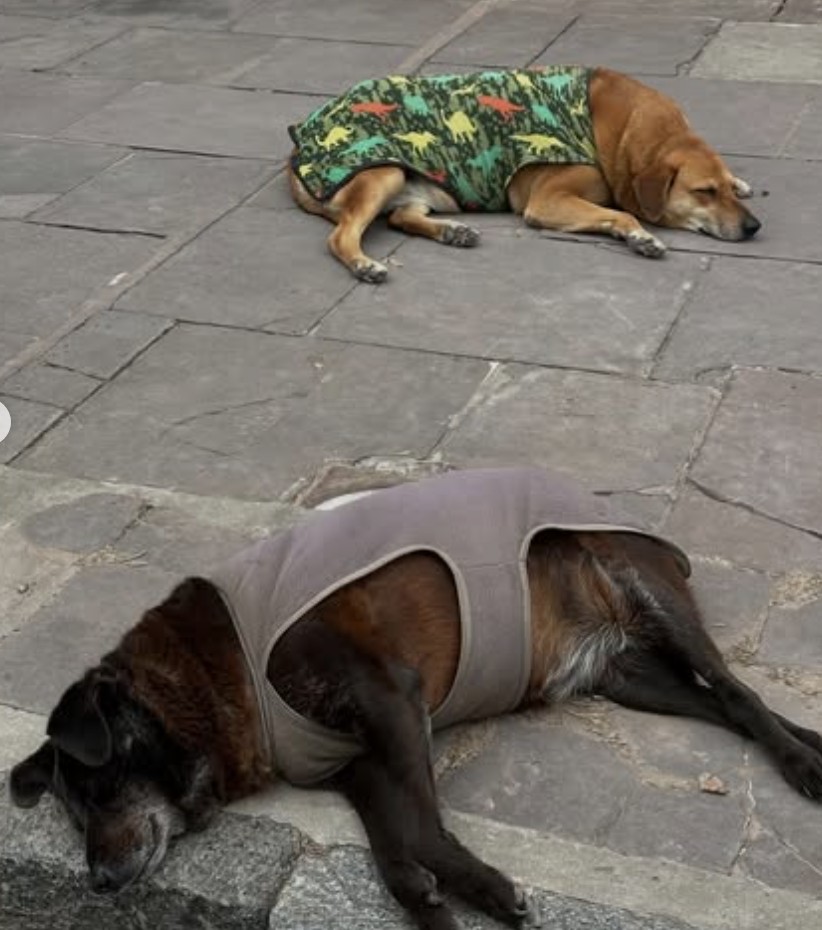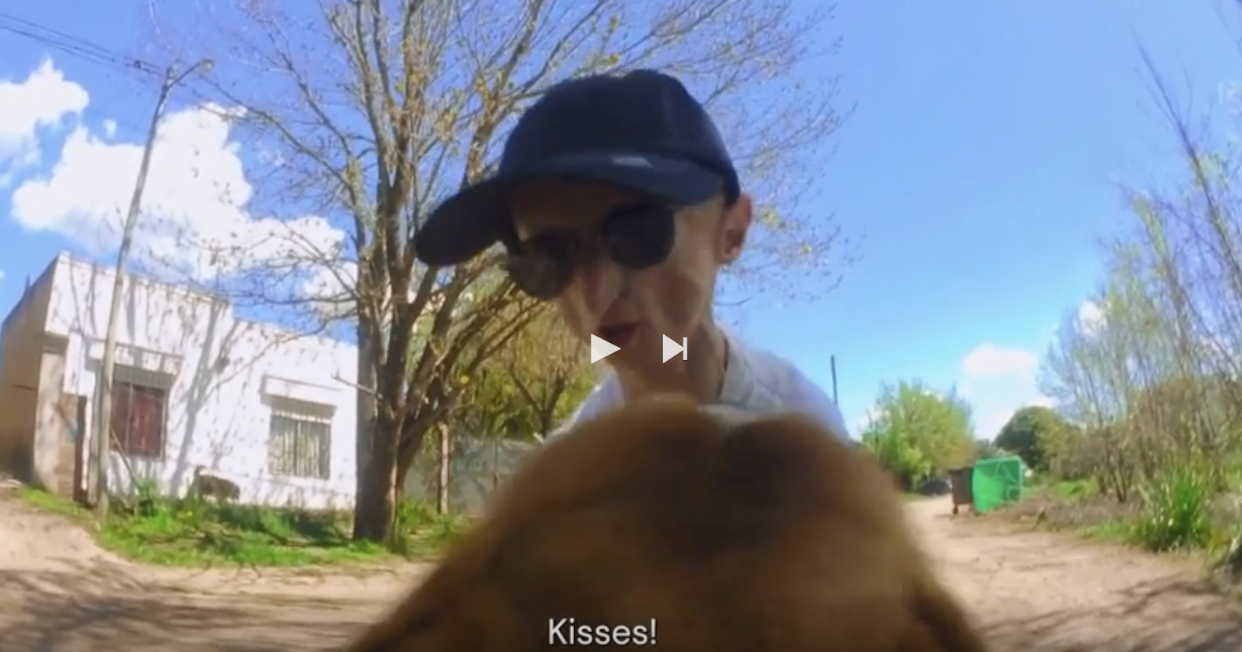"Who's gonna tell the dogs it was satire?" Review of Magic Farm, directed by Amalia Ulman (2025)
Review / 16 June 2025 / By: Mandy Warhole / ★ ★ ★ ★
Mandy Warhole is a stand-up comedian in London.
"Edna (Sevigny) is like an empty bat signal for a girlboss or successful cultural self."
Amalia Ulman been knew. Her sophomore venture, Magic Farm (2025), plays like a 360-view of a devoutly organised trousseau box, flat-packed with everything a girl needs to become a woman: bridal linens, family heirloom jewels, and heavily diarised secrets. Ulman's bridal package consists of nylon tablecloths, camera equipment, and surgically constructed arguments in ethno-nihilism. The same starter-pack that prepares a woman for marriage is what I imagine prepared Magic Farm to be the final word on the collapse of Western multiculturalism.
Which is fine, I guess. It makes sense - even. Ulman is an Argentine-Spanish filmmaker and an immigrant artist living and working in New York. I was once, too, an Argentine-Spanish immigrant artist living in the city. Except, I am actually Russian and barely made any art. I am certain, however, that we would have had many of the same run-ins with the insidious “creative” that the film portrays. Simon Rex plays Dave "a creative" twat pushing 40-something whose narcissism spawns an eerie vitalist force, capable of turning tricks on the dirty streets of the algorithm using even the slimiest offcuts from the content farm. A group of these men, born of VICE, are called “an agency." In a profoundly meta-textual casting choice, the agency is spearheaded by girlboss Chloe Sevigny, styled and poised like late-stage Man Repeller. Supporting her is famed gay-looking straight actor Alex Wolff, who plays Jeff, Chloe Sevigny’s incapably horny Gen-Z producer. An incompetent, chlamydia-ridden, narcissist stoner of the visibly-ex-skater variety is an inspired character from Ulman, lifted from a taxonomy of the Verminous Male Sexual Types of New York City. Wolff’s Jeff is a generationally-pathological personality, more common than deli e.coli lettuce. I am confident in my certification of Ulman’s satire - of a creative agency making YouTube mid-form content - as spot on.
Of course these Americans are going to come to an anonymised Latin-American countryside and breakdance vaguely Spanish words with their huge, open mouths. They will impose their own, completely inaccurate portrait on the periphery in order to then get clout in the bi-coastal metropoles. Like the trousseau box, they will compartmentalise every thought and trinket into a space that makes sense for them. There is more cultural analysis than ever before, and it's super Neo-neo Colonial. Ulman drives that point home through her CapCut-esque content-forward editing. The go-pro is an obvious visual symbol of the 2010s performative obsession with putting oneself in the shoes of the Other as a means to a political end. Strapping Go-Pro cameras to the dogs and cats of St Cristobal pokes fun at the idea that this kind of universalist slapdash empathy is possible. The tumble-dryer match cuts, too, remind us of the early days of YouTube vlogging.
Not to mention, the bastardised neon grade or the Dolls Kill-era wardrobe for the models. Every vestibule needs a centrepiece, and every barnyard needs a horse that you can stroke like a stress ball in between filming grueling outfit videos. Here, Edna (Sevigny), is like an empty bat signal for a girlboss or successful cultural self. A veteran it-girl playing a veteran it-girl, she comes with emotional baggage in the form of suitcases full of spotless tabis, old Isobel Marant and an image of tortured womanhood she cannot shake. With a #metooed husband, Dave, who makes her strap into her blazer like horse in its plough in a quest for those YouTube bucks, Sevigny plays a character whose former sub-cultural clairvoyance has clearly been reiterated to the point of becoming a trend report powerpoint. Her performance is delightfully morbid, a bit telenovela, compared to the hyper-naturalistic Brooklyn mumblecore shit the rest of the cast was on.
The cracks start to show when Ulman self-inserts as Elena, the only character that speaks Spanish, and acts as the sole bridge between “the Americans” and "the locals”. She is supposed to be literally and linguistically stuck between the two worlds, existing at the standard level of cognitive dissonance required to “succeed” at immigration. Yet, we do not really see that in the script or the performance. All she confesses to seems to be that she is the real girlboss to Sevigny’s mythologized one, thugging it out for production credits.
Ulman wants so badly to paralyse the world in a doomist, punitive verdict about globalisation and its discontents. That, maybe, makes for great conversation fodder in a setting where 40 of your “closest” terminally bicoastal friends exchange deadpan remarks about how deluded everyone else is. Lines are delivered to muted ICA laughs and natural wine burps. To the rest of us, in a sort of Russian doll turn of events, Ulman and her crew came to a small village in a country significantly affected by its power imbalance-relationship with the US, they filmed their nuanced post-colonial takes, and they left the people with the absurd. Who’s gonna tell the dogs it was satire?

